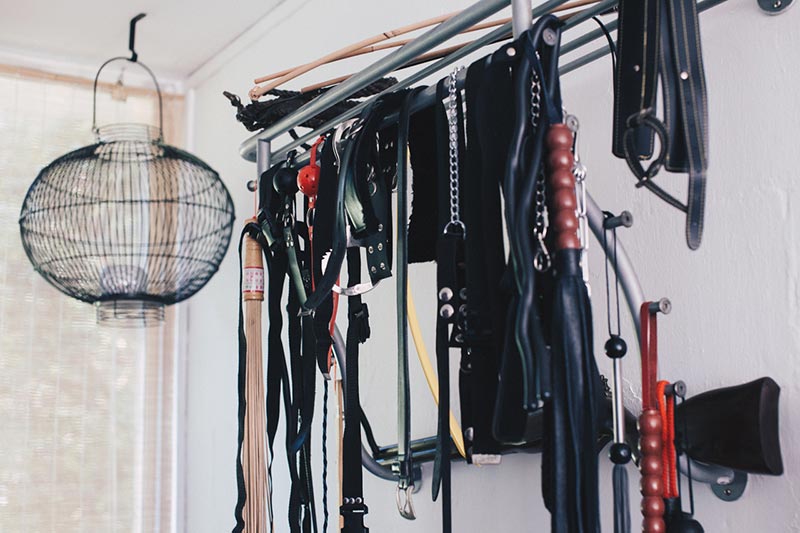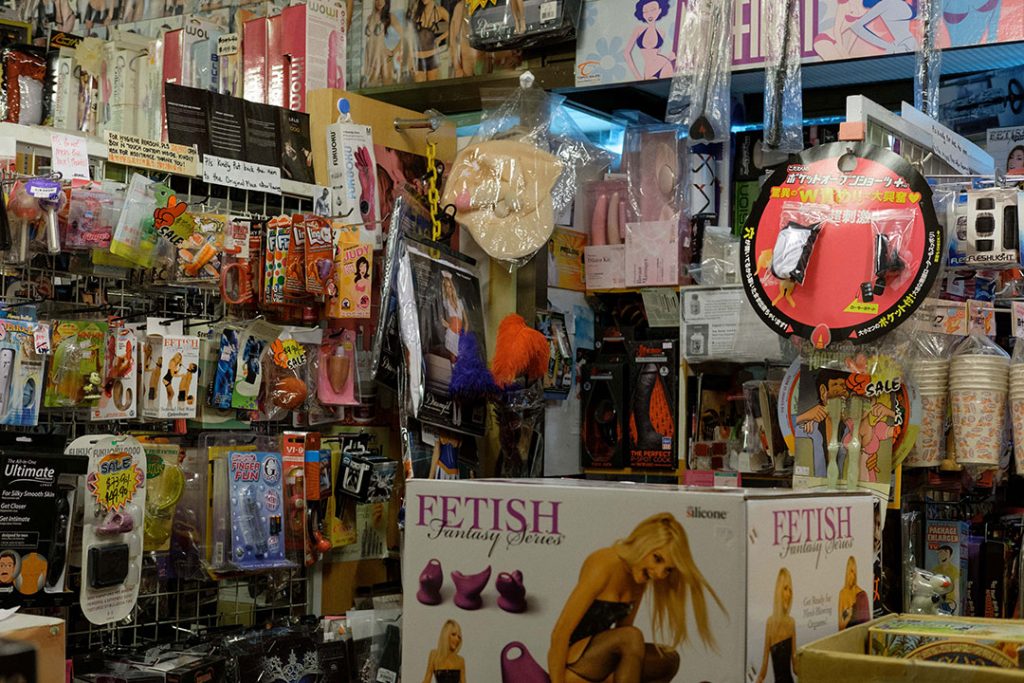All other images: RICE File Photos.
Responses to this episode varied. The self-righteous with twisted knickers claimed that these individuals were disrespecting our honourable armed forces. Some took a moderate stance, not caring about the men’s private bedroom activities, but thought it wrong that these photographs were published publicly. Others found nothing objectionable, but were disgusted at our culture of snitching on fellow Singaporeans.
This episode, and the range of responses it triggered, raised several questions:
Can our sexual proclivities be branded morally right or wrong, healthy or unhealthy? Should we only be having sex in a ‘normal’ and ‘socially respectful’ way? Is the furore caused by a misunderstanding of fetishes?
To answer these questions, we spoke to Dr Angela Tan, an intimacy coach who is a practising doctor and a co-founder of a social entreprise.

Dr Tan: The ICD-10 defines fetishism as a reliance on non-living objects for sexual arousal and satisfaction. It is only considered a disorder when fetishistic activities are the foremost source of sexual satisfaction, and become so compelling or unacceptable as to cause distress or interfere with normal sexual intercourse.
To put it simply, when someone has a fetish, he or she needs to have a particular object in order to have an orgasm.
People tend to blur the lines and use the word non-specifically. For example, I like intellectual guys. If a guy wears spectacles, it makes him look smart and sexy, so I like him more. Or maybe someone who is very into lacy lingerie gets turned on when their partner wears one.
But that’s a preference; something that turns you on. It’s not a fetish.
How do fetishes develop?
Dr Tan: We don’t know for sure because there’s not enough research on it yet. My conjecture is that it forms out of associations our brain makes without us realising it.
Think of your favourite food. You’ll salivate instantly. Or when you walk into a toilet. You immediately choose a cubicle even though you don’t think about it consciously.
Same thing with preferences and fetishes. Maybe in our first few sexual encounters with ourselves, we might have used something that worked. Or even as young children, we can unknowingly build an association between certain objects and pleasurable feelings.
But we don’t know when because everything happens so quickly. Our memories are not infallible documents. Imagine 30 years of bullshit packed into your brain. These formative associations get lost in the bullshit.

Dr Tan: In strict medical terms, no. Preferences and tendencies, yes.
Based on the photograph of the two individuals, it’s hard to tell whether it’s a fetish or a tendency.
Maybe they’re just bored. Fooling around, posting stuff to go viral. Which they did.
Are fetishes unhealthy?
Dr Tan: If they are not harming yourself or someone else (physically or emotionally), or taking up so much of your time that your day-to-day functioning is impaired, then it’s perfectly fine to keep them.
When people do not understand something, they deem it as wrong. They label it, they judge it. And people start feeling afraid of being judged, becoming mindful of what they share of their personal sexual experiences.
This fosters a lot of negativity associated with sex.
If a woman declares openly that she enjoys sex and pleasure, she is likely to be deemed as “loose”. It is a shameful, embarrassing thing.
On the other hand, if you are not functioning “normally” in the bedroom, you are deemed incompetent.
Damned if you are good, damned if you are bad. It makes no sense!
You have to be very, very neutral in order to fit in. When it comes to preferences, you cannot be over the line: you have to like what everybody likes. For example, all guys must like girls with big boobs. If a girl with big boobs walks past and a guy doesn’t look at her, there must be something wrong with him.
This is why people, like those from the LGBTQ community [and those with fetishes], get marginalised. Society and culture can be limiting and myopic.
You have to be very, very neutral in order to fit in.
Does that mean there is no “wrong” or “unacceptable” fetish?
Dr Tan: A fetish is unacceptable when it is physically and/or emotionally harmful to self, to others, or breaks the law.
Is there a correlation between someone’s personality and morals, and the fetish they have?
Dr Tan: I don’t think so. People are good at putting up facades. A person has three segments: public, private, secret. All these fronts may be different from each other. So in the first place, when we talk about “personality”, there is no unified personality to speak of.
That’s what makes relationships with people difficult. The person you meet and the person you marry may be quite different.

Dr Tan: The SAF commands a certain form of respect from us because it keeps our nation secure. When you wear that uniform and do something that diminishes this authority, I think that’s not respectful of the intent of the organisation.
Having said that, if nobody knows, nobody knows. If it’s for personal viewing, it’s not an issue. It’s unfortunate and inappropriate that it went online.
I don’t think the outrage is about the uniform. It’s about them wearing this particular uniform, which has a particular meaning for this country. It’s like parading around with the flag as a scarf. The respect for the symbol is gone.
Someone on Twitter suggested that engaging in uniform fetish play can be a way of healing from the trauma that National Service inflicts on many queer people. Do you agree with this perspective?
Dr Tan: For such a scenario, I won’t say it’s a fetish anymore. It’s more like role play, which allows people to handle the world in a different way. For example, people who are authoritative in work may need to feel balanced outside the office, so they act out being a submissive partner in the comforts of someone they trust.
In the case of these two individuals who went viral, they might be working through personal traumas through role play. However, there are other ways of seeking therapy. Instead of using the uniform, which is deemed inappropriate in a public setting, you can use other things to represent the SAF, like an army soldier figurine.
And the problem with this is that they might not have the appropriate training in psychology and counselling.
But I agree that these hypermasculine environments can cause trauma. It’s the same thing in boys’ schools. So the bigger thing that is missing is, how can the whole of society be more tolerant of differences? And also the normalisation of treatment through therapy, should we have a difficult patch we can’t overcome.
It’s about us being mindful of what we are judging. More than, “this is gay, this is not gay”. All these are labels. Labels have no meaning in the grander scheme of things. Ultimately, labels divide people.

Dr Tan: Yes, if you have proper and respectful communication. All healthy relationships start from being honest and upfront. What each partner is comfortable with, their boundaries and limits.
If only one partner has a fetish, they can masturbate to their fetish, if agreed on, or have the object around when making love. It all depends on communicating honestly with the partner.
My opinion is, if they truly matter to each other, having a fetish should not be a problem. Things can be worked out.
For an analogous scenario, it’s as if a woman had breast cancer and had to remove her breast, and her partner said, “I don’t want to have sex with you anymore as you are missing a breast”. That is not quite right in a seemingly healthy relationship, ya?
(Having said that, losing breasts can be a huge thing for a couple, it is akin to losing a close friend that you know your entire life. If couples are struggling with intimacy and relationship building, therapy is strongly recommended.)
So you don’t need to seek therapy if you have a fetish but your partner doesn’t?
Dr Tan: You only need therapy if you are worried that people, or your partner, will judge you.
Usually, there’s a deeper issue. For my clients, I will have a conversation with them to find out what is going on. How much does it bother them? Why does it bother them? And if they are keen to find alternatives to get sexually aroused with their partners beside their fetish, that is explored too.
But it’s like, if your partner likes mala hotpot and you don’t like it, what’s the big deal?

Dr Tan: There are two main forms of sex education. One is abstinence. One is holistic.
Holistic education is widely practised in Europe. Based on what researchers have found, the number of teenage pregnancies in countries that practise holistic sex education has gone down. And the age of the first encounter has gone up.
That’s all I need to say.
In all, I feel we should be more tolerant with each other’s differences, not be too quick to judge someone else, especially in trying times like the current pandemic.
My fetish is mala xiang guo. What’s yours? Tell us at community@ricemedia.co.





